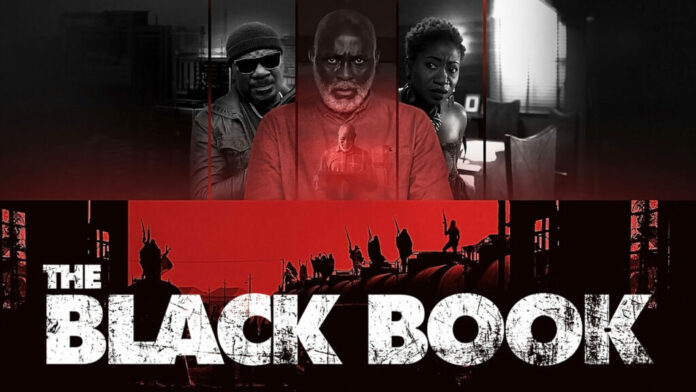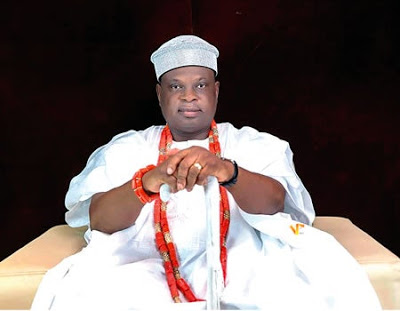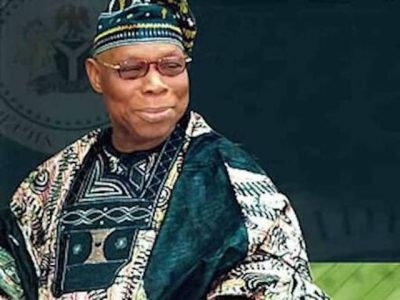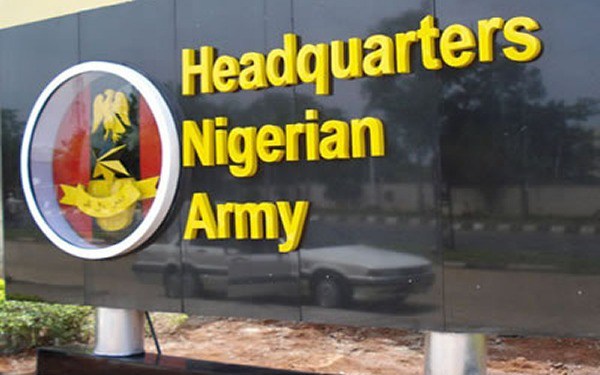Nigeria’s cinematic sensation, “The Black Book,” graced Netflix screens on September 22, 2023, and the buzz around it was undeniable. This movie marked a unique connection between the African tech sector and the entertainment industry, boasting partnerships with industry giants like Ventures Platform, Bluechip Technologies, Flutterwave, Piggyvest, Paystack, and Eden Life. Naturally, expectations ran high, with A-list actors poised to deliver exceptional performances.
With a staggering budget of $1 million USD and nearly four years in the making, this action-packed thriller, under the skilled direction of Editi Effiong, tells the gripping tale of Paul Edima, a former hitman-turned-deacon. His life takes a drastic turn when his only son falls victim to corruption involving the very law enforcers and politicians who were once part of his gang.
While “The Black Book” secured the top spot on Netflix Worldwide, it triggered a mixed response from viewers. Some lauded the movie for its compelling narrative, exceptional cinematography, and stellar cast. Yet, for many, the intricate plot and multiple storylines posed challenges, resulting in a 5.1/10 rating on IMDb.
In my view, the movie, despite its complexity, is a valuable addition to Nigerian cinema. It tackles issues that resonate deeply within our society, ranging from crime, police brutality, and corruption to themes of revenge and redemption. At its core, the film serves as a cautionary tale, shedding light on the complex web of Nigerian business, politics, and social dynamics. Notably, it delves into the painful reality of police brutality, as Damilola, an innocent character, falls victim to corrupt law enforcement officers who knowingly frame him for a crime he did not commit.
Despite the chaos and the narrative’s intricacies, “The Black Book” manages to highlight critical issues embedded in Nigerian society. Beyond its apparent themes, I firmly believe the film sparks essential questions about the country’s deep-rooted challenges. I have pinpointed six thought-provoking themes and questions that the movie brings to the forefront and demand our attention:
- Theme 1: Crime Rate in Nigeria & The Role of the Police:
Nigeria’s soaring crime rate, encompassing issues like kidnapping, armed robbery, and murder, presents a grim reality. The police are conventionally tasked with maintaining law and order, but do they genuinely fulfill this responsibility? Is “the police truly your friend,” as the slogan suggests? Can they be relied upon to safeguard lives and property? Recent events in Nigeria have ignited widespread outrage due to police brutality, sparking protests and resistance from the public.
However, a striking revelation from the movie is the unsettling truth about the police’s position in society. It underscores how deeply corruption has permeated the ranks. Beyond soliciting bribes and harassing citizens, the movie exposes how some members of the police force actively facilitate crimes and violence by colluding with criminals, effectively making the force a part of the problem rather than the solution. While there are undoubtedly honorable officers, the movie’s portrayal indicates that corruption has infested the system, making it exceptionally challenging to eradicate criminality from society.
- Theme 2: Karma vs. God’s Forgiveness:
The movie also delves into profound questions about karma and the concept of divine forgiveness. Paul Edima, a former hitman turned deacon, has left behind his criminal past to serve at a local church. After losing his wife years ago, his only son, Damilola Edima, tragically falls victim to police brutality, being falsely implicated in a crime he knows nothing about. Given Paul’s history of atrocities, he initially resists seeking vengeance, viewing his son’s death as a form of retribution for his past sins.
This situation raises poignant queries: Does karma transcend the possibility of redemption? Are all our past sins genuinely forgiven without any retribution? Does a spiritual transformation shield us from adversity? Despite dedicating the latter part of his life to God’s work, Paul still grapples with the profound repercussions of his past actions. This prompts a deeper examination of the roles of Karma and divine forgiveness in our daily lives. While God forgives the sinner, can one truly escape the consequences of a past filled with atrocities?
- Theme 3: Unveiling Hidden Pasts:
In Nigeria, a prevalent belief is that individuals who embrace religion, particularly as they age, often do so to seek redemption for their past transgressions. They aim to turn over a new leaf and embark on a righteous path with God. This belief is vividly portrayed through the character of Paul Edima in the film. He is depicted as a loving father, a caring neighbor deeply committed to his community, and a devout religious figure.
He spends quality time with his son, assists his neighbors, and delivers sermons at the church after his regular job. In the initial scenes, he encourages his son to attend church services and strengthen his relationship with God. The tragic death of his son evokes sympathy, considering the life of devotion he led. However, it isn’t until later in the movie that we discover Paul Edima’s dark, violent history as one of Nigeria’s deadliest assassins.
The revelation of this hidden side raises compelling questions about individuals who project religious and virtuous personas while concealing their shadowy pasts, reinforcing existing beliefs about hidden facets of religious people. While this portrayal doesn’t apply universally and should not serve as a yardstick for evaluating one’s commitment to God, it prompts us to look beyond the surface and consider the complexity of individuals and their past experiences.
- Theme 4: The Quest for Change and Justice:
The movie commences with a prominent scene, an orchestrated broad daylight attack on a man and his child. Initially, it appears to be a typical kidnapping-for-ransom scenario. However, as the plot unfolds, it unveils the dark underbelly of Nigerian politics and economics. The deliberate attack targets Professor Craig, the CEO of the Nigeria Energy & Oil Company, who is determined to expose the deep-seated corruption within the ministry.
Throughout the film, numerous instances of injustice are meted out to individuals, including Paul Edima, who is detained and subjected to physical abuse while seeking the return of his son’s body. This narrative compels us to question the possibility of achieving genuine change and justice in a country like Nigeria. Are law enforcement agencies genuinely committed to upholding justice? Is there hope for the underprivileged, the powerless, and the innocent?
The film’s unfolding events underscore the challenges of obtaining justice in a system marred by corruption and bias. Paul Edima’s capacity to secure justice for his son’s death, driven by his prior affiliations with clandestine forces, highlights the obstacles faced by those without such resources. The movie’s portrayal of an editor’s involvement further illustrates the profound extent of corruption in Nigeria.
- Theme 5: Money’s Influence on Relationships & Betrayal:
Money is often regarded as the root of all evil, and its impact on individuals’ behavior can be profound. This movie explores the intricate dynamics between money and relationships, shedding light on the role of friendship, love, and family in the face of financial temptation. It is a well-known fact that the allure of money can strain even the strongest bonds, rendering relationships superficial.
However, this film delves deeper into this notion. The editor’s constant communication with the killers of an investigative journalist, who also happens to be Victoria’s mother, and the role she plays as an informant in the ongoing case, including destroying evidence for monetary gain, underscores the fragility of relationships when confronted with financial incentives. Similarly, the General’s decision to spare the obnoxious Senator Dipo, despite their past disputes, is motivated by monetary benefits. These instances emphasize the transitory and insignificant nature of purportedly “strong relationships or bonds” when money is introduced. The movie raises essential questions: Can you trust a friend or family member to remain loyal, even when tempted by financial gain? Are people genuinely committed to having your back, regardless of the circumstances?
- Theme 6: Your Enemy can be closer than you think:
The age-old adage “keep your friends close and your enemies closer” finds resonance in the film’s portrayal of the proximity of adversaries. This theme is evident in the relationships between Victoria and the Editor, as well as the Commissioner of Police and her team. Victoria, throughout her journalism career, is dedicated to uncovering the truth about her mother’s assailants, unaware of the Editor’s affiliation with the perpetrators.
Similarly, the Commissioner relentlessly pursues Paul Edima, whom she believes to be “public enemy No.1,” all while remaining oblivious to the fact that the true culprits are within her own ranks. While this theme may not always reflect reality, it underscores the notion that sometimes the enemy we seek to capture or overcome might be closer than expected. This concept further accentuates the popular Yoruba saying: “E ni a fe la mo, a o mo eni to feni,” which translates to “We know the one we love, but we don’t truly know the one who loves us.” The film prompts us to reflect on the blurred lines between friend and foe and how our closest allies may sometimes bear unexpected intentions.
The film “The Black Book” sheds light on the pervasive corruption deeply ingrained in the Nigerian system. It reveals how corruption has seeped into every corner of society, from law enforcement agencies and the media to the military and even grassroots levels. The film portrays a grim reality where escaping this systemic issue seems nearly impossible.
Beyond the film’s central themes of revenge, crime, corruption, and redemption, it serves as a stark reflection of Nigerian society and how different characters contribute to the perpetuation of these crimes. The historical context presented in the film underlines that the problems we grapple with today are rooted in our nation’s dark history. The drug trade, assassinations, criminal activities, corruption, and instability we decry today have deep-seated historical origins. This prompts crucial questions: Where do we commence the journey of change in Nigeria, and how far-reaching is this corruption? Can we realistically hope for change with so many entities mired in these issues?
The film also underscores the vital role of activism and revolutionary movements in driving change. It illustrates that one individual can make a difference by standing up against injustice and working toward a reformed nation. However, it’s essential to remember that “Black Book” is a work of fiction, and real-life experiences might differ, as evidenced by the tragic events and lessons from the EndSARS protest. Achieving meaningful social revolution, as portrayed in the film, can be considerably more challenging in reality.
In summary, “The Black Book” acts as both a cautionary tale and a revealing exposé of the deep-seated injustices in the Nigerian system. It calls upon Nigerians to be vigilant and aware of the hidden problems within the nation. The beggars and impoverished children on the streets may serve as pawns for influential figures dispersed throughout our communities, engaged in clandestine activities. The friendly market vendor you converse with might be involved in more complex matters than meets the eye, and your seemingly perfect, religious neighbor may harbor a hidden agenda. The film prompts us to stay alert, question coincidences, and consider that we might face more significant dangers than we initially perceive.
In conclusion, exercise caution, prioritize safety, and remain vigilant for your well-being.




















